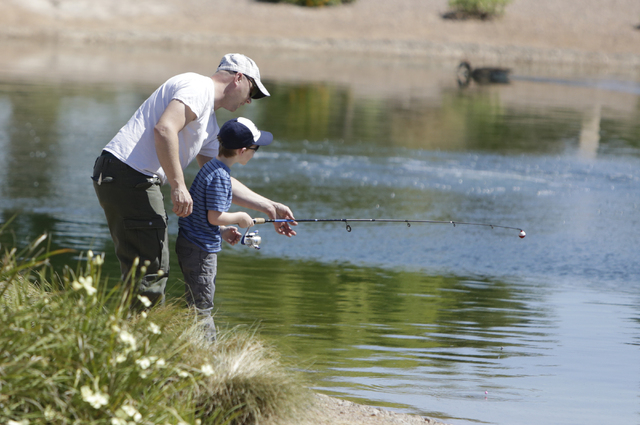Tips to hook novice anglers both young and old

Whether you are an avid outdoor enthusiast with lots of experience or someone who has simply spent a few more days doing outdoor things than the average person, the day is sure to come when someone asks, “Will you teach me?”
What comes after that phrase could range anywhere from “how to camp” to “how to hunt,” and from “how to shoot a bow” to “how to paddle a canoe.” But my guess is one of the most common requests is, “Will you teach me how to fish?” Another version is “Will you teach my child(ren)?”
Though outdoor types can sometimes respond a little curmudgeonly to such a request, the reality is most of us enjoy sharing our passions with those who are truly interested and willing to listen. Through the years, I have observed numerous sportsmen and women give their time and resources simply for the satisfaction that comes from introducing someone new to the outdoors.
Though we like to think there is a vast difference between teaching adults and teaching children about the finer points of fishing or other outdoor pursuits, for that matter, the difference is relatively small. For instance, both want to do it themselves right out of the gate.
Here’s a few tips for teaching children how to fish, but the principles also apply to teaching adults.
First, keep it simple. To newbies, the terms catching and fishing mean the same thing. Start out with a species that is relatively easy to catch. Blue gill, catfish or stocked rainbow trout come to mind. The tackle required to catch these species is relatively simple to use and easy to choose. A good old-fashioned worm will catch them all.
This principle also applies to tackle. Spinning reels can be difficult for beginners to manage, and baitcasters are an enigma even to some experienced anglers. A simple, push-button spincasting reel with a matching rod is a good option for beginning anglers of all ages and are relatively inexpensive. Just do yourself a favor and avoid the toy versions unless you are given no choice. Rod and reel combos named after dolls and cartoon characters are cute, but they can have a short life span.
Second, leave them wanting more. Remember that a child’s attention span is relatively short, but the same can be true for new anglers of the adult variety. Granted, one’s attention span can be helped tremendously if the bite is good, but even then there is a limit. Keep an eye out for signs that their interest is fading, then call it a day.
Perhaps the most common mistake I see experienced anglers make is forcing kids to remain focused on fishing when they are ready to chase lizards, go wading or skip rocks.
Another is keeping them cooped up on the boat too long. Don’t wait until you are done, even when the fish are biting. Leave them, as they say, wanting more. Then they will be back.
Third, choose a location with easy access. Save the steep hill climbs, five-mile hikes and brush choked creeks for later in their fishing career. Also, avoid waters that are managed as a trophy fishery. They are usually the ones with a slot limit to protect fish of a certain size, or even a catch-and-release regulation. Kids and even more mature anglers can have a difficult time understanding why they can’t keep their fish.
Fourth, go prepared and be safe. Make sure your terminal tackle is well organized before leaving home. That way you can quickly rig a rod for the eager angler-in-training. Don’t wait until you’re on the shoreline to put that new line on the reel. Kids don’t like to wait and will try to help if they think it will make things happen faster. We all know what that could mean.
Also, be sure to have life jackets of the correct size, snacks, jackets, hats, sunscreen, bug spray and whatever else is needed to make the day safe and pleasant.
Lastly, go prepared to focus on your student. That very well might mean leaving your own fishing rod in the truck or on the deck, something that comes with the territory because you can’t help a youngster when you are concentrating on your own fishing experience.
We can’t always learn by simply watching someone with more experience. Look for opportunities to work on technique, teach them how to read the water, discuss the importance of bait selection or talk about the significant role anglers have played in the conservation movement.
Keep in mind that your student anglers won’t always remember what you say, but they will always remember how you made them feel. If you help them have a good beginning experience, if you give them a day to remember, chances are they will want to do the same for someone else.
Freelance writer Doug Nielsen is a conservation educator for the Nevada Department of Wildlife. His “In the Outdoors” column, published Thursday in the Las Vegas Review-Journal, is not affiliated with or endorsed by the NDOW. Any opinions he states in his column are his own. He can be reached at intheoutdoorslv@gmail.com.